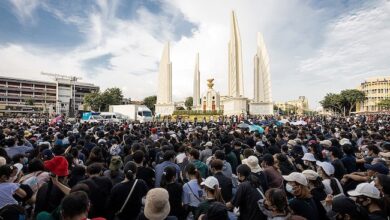Addressing global diversity deficits in legal systems

In many nations around the world, systemic racial inequity is rampant within the criminal justice system. The issue is so prevalent that various research groups have come together to collect data on the rule of law and the effective operation of global justice systems. Last published in 2020, the World Justice Project Rule of Law Index looked at adherence to law in 128 countries and jurisdictions and found numerous discrepancies.
To determine the ranking of a nation’s legal system, various data is considered. The WJP index looks at factors such as corruption, regulatory enforcement, criminal justice, government power constraints, and more. In many cases, legal systems were found to suffer from a lack of diversity as well, leading to further injustice and inequality for citizens, especially those living in poverty.
And as far as diversity in the legal system is concerned, some nations stand out more than others. The entire US criminal justice system, for example, suffers from a “crippling diversity problem,” according to USA Today, while Denmark received the highest WJP scores in the world. Let’s take a look at how legal systems around the globe suffer from a lack of diversity and potential solutions for the complex issue.
Minorities in Law: By the Numbers
Diversity and inclusion are among the biggest talking points in modern society, yet many industries are lacking in this regard. Despite its prominent role in justice and civil rights, the legal system is among the least diverse of all professions, although numbers vary considerably by nation.
Within the US, the bulk of legal professionals is white, of non-Hispanic origin. A recent study found that minorities make up less than 15% of practicing lawyers in the US, and only 37% of legal professionals are female. Interestingly, however, the tide may be turning: Law schools are churning out the most diverse student bodies seen in modern times, and there were more females enrolled in US law schools than males in 2020.
As far as gender disparity is concerned, Canada ranks near the top of the equality scale, where women and men are on nearly equal footing. In every location, however, it’s important to note that the subject of diversity spans well beyond race and gender to encompass age, religion, as well as religious and cultural demographics. Diversity looks different depending on the country or municipality, and solutions must thus be tailored to serve individual community needs.
Identifying Diversity Deficits in Everyday Life
Of course, the legal system isn’t alone when it comes to a lack of diversity. As we go about our day-to-day lives, examples of prejudice can be seen all around us. Unfortunately, however, they’re not always easy to identify, and they can be detrimental to our mental health and wellbeing.
Some global citizens may even experience a form of discrimination known as microaggressions. No matter the setting, from a courtroom to a law school lecture hall, microaggressions can be verbal, environmental, or behavioral. In any case, microaggressions are typically rooted in discrimination, primarily affecting marginalized groups, and serving to undermine the integrity of the legal system as a whole.
For minorities in the legal industry, microaggressions are harmful on several levels. For starters, consistent workplace discrimination can compromise one’s ability to perform their job. And when a lawyer or judge isn’t on his or her game, their clients are more vulnerable to a miscarriage of justice, especially for the world’s poorest citizens who lack the income, education, and/or skills to adeqately represent themselves.
Exposure to microaggressions has also been found to negatively impact an individual’s mental and physical health, and may even alter cognitive functioning. In a study on the cognitive effects of racial microaggressions published in The Journal of Negro Education, researchers concluded that Black women who work or study in a hostile environments are particularly susceptible to cognitive depletion. Common microaggression experiences include racial slurs and comments (either written or spoken), and unequal treatment, including regulations and laws put in place that are designed to benefit a particular group of people over another.
The Connection Between Diversity and Poverty
A striking example of ethnic deficits in the legal system can be seen in the modern laws of Israel, Aljazeera reports. The news source claims that there are more than 65 laws in place that are discriminatory towards Palestinian residents of Israel, and residents of occupied territories. Many of those laws relate to housing, land ownership, and residency rights, and few Palestinians can afford legal representation, leaving them with little to no options in the eyes of the law.
The affordability of legal representation, in fact, is one of the biggest hurdles to justice. And around the world, corruption, bribery, and civil rights violations in global legal systems equate to an atmosphere of inequality and injustice. The issue is a multifaceted one, and some proponents of change have proposed radical solutions such as establishing special courts for ethnic disputes. In nations where religion and ethnicity play a role in the court system, these types of specialty courts could indeed help restore balance to the criminal justice system.
The stark reality is that diversity deficits can be seen worldwide, and even the legal system isn’t immune from discrimination. Addressing inequality in the criminal justice system could result in a cascading effect that could ultimately improve the quality of life for the world’s most vulnerable citizens.




